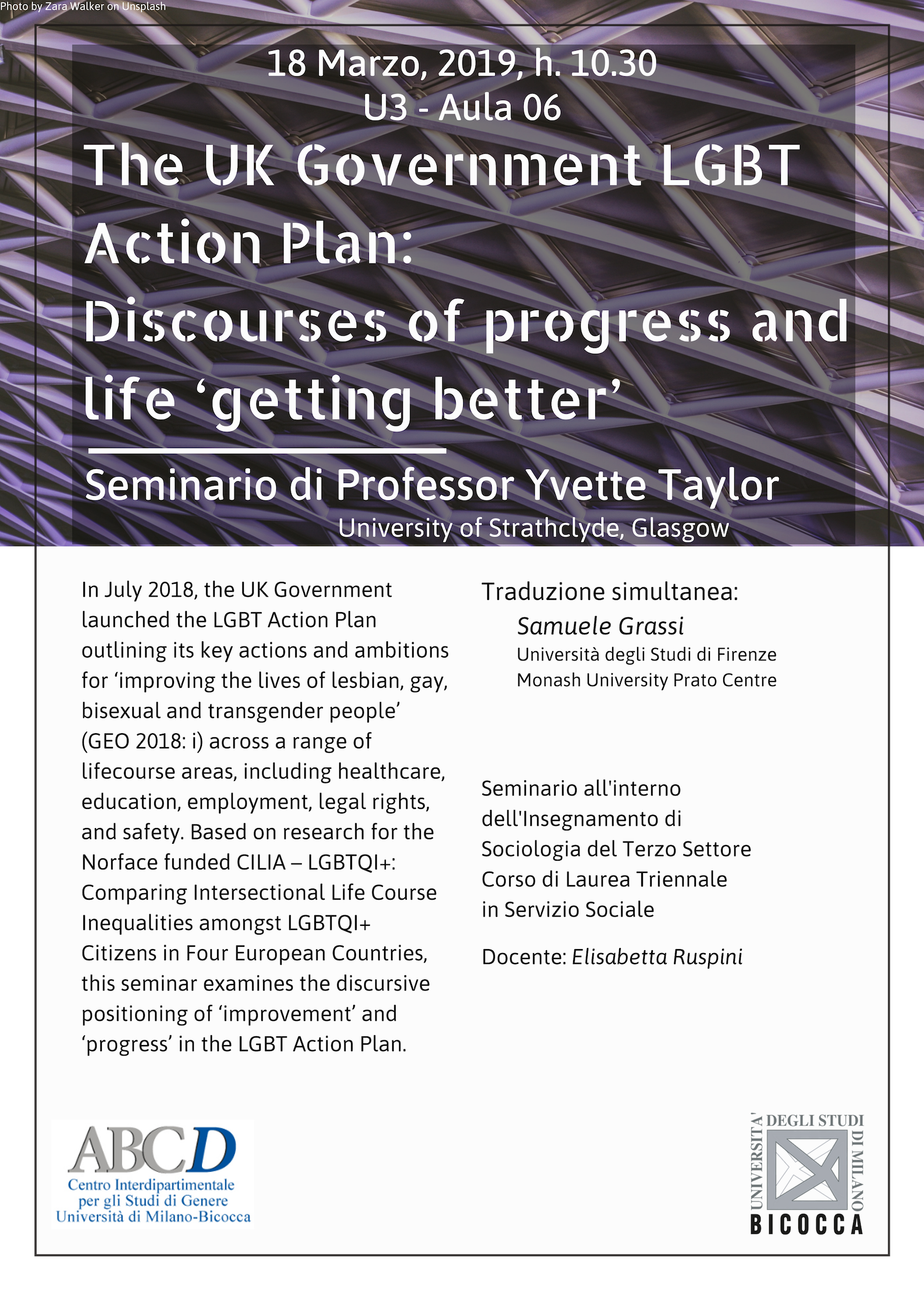9 maggio 2019
Auditorium Guido Martinotti, Edificio U12, Via Vizzola 5
Ore 14.30 – 18.30
Quando si parla di “festa” del Consiglio d’Europa (5 maggio) e dell’Unione Europea (9 maggio), cosa significa ricordare storie di violenza e di discriminazione di genere, alla luce di nuove politiche e di prospettive per il futuro?
Introduce: Marina Calloni
I Parte - Le memorie e le sfide del presente
Roberta Biagerelli, attrice: Figlie dell'epoca. Un monologo
Pia Locatelli, ex deputata al Parlamento Italiano e al Parlamento Europeo: Le madri dell'Europa unita
II Parte - Il consiglio d'Europa nel contrasto alla violenza domestica
Sara De Vido, Università di Venezia: La Convenzione di Instanbul e l'implementazione dei paesi membri
Paola Degani, Università di Padova: Applicazione e monitoraggio della Convenzione
III Parte - Quali politiche anti-discriminatorie nell'Unione Europea?
Tavola Rotonda
Modera: Giorgia Serughetti
Intervengono: Chiara Annovazzi, Roberto Cornelli, Laura Formenti, Sveva Magaraggia, Antonella Nespoli, Elisabetta Ruspini, Tatjana Sekulic.

